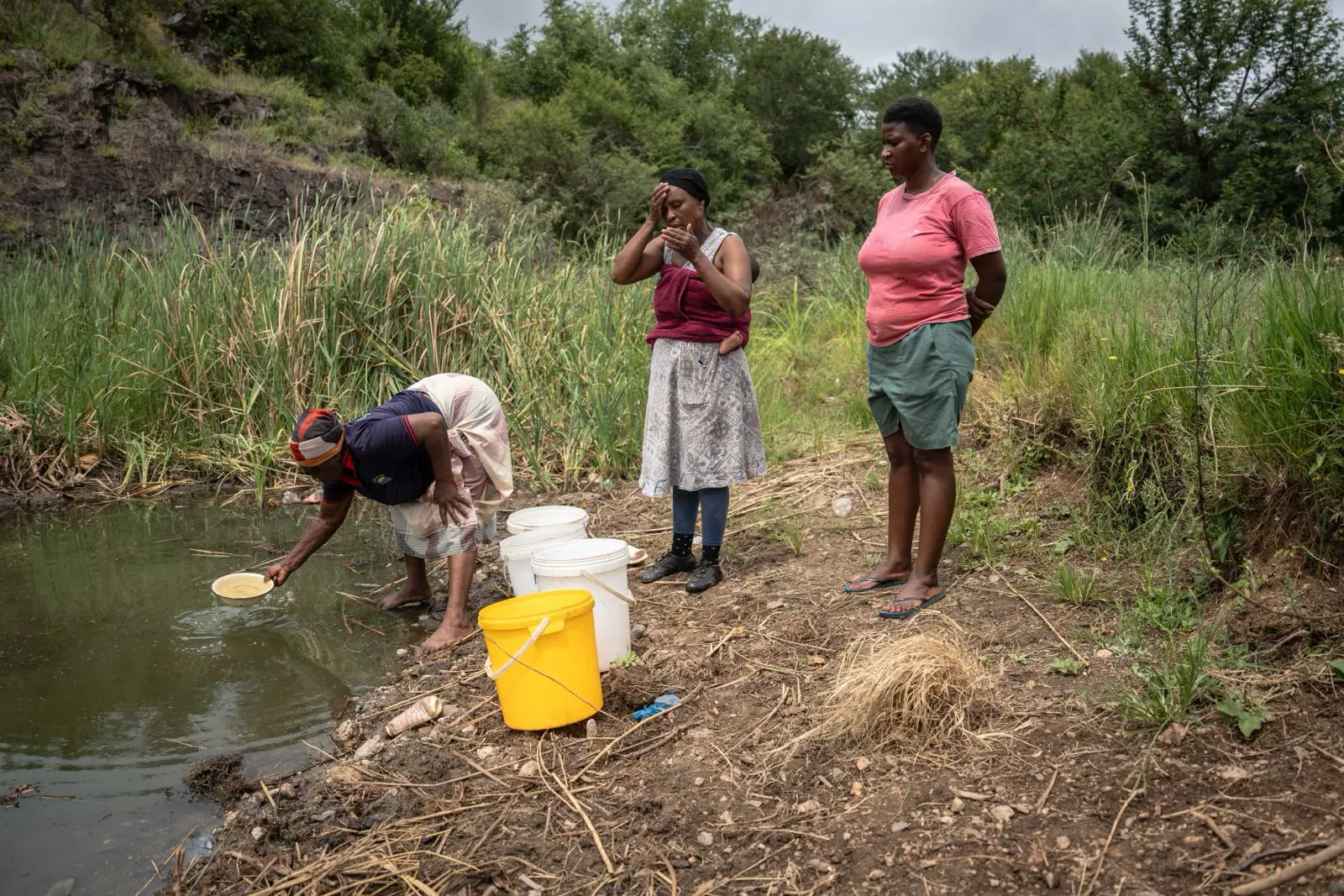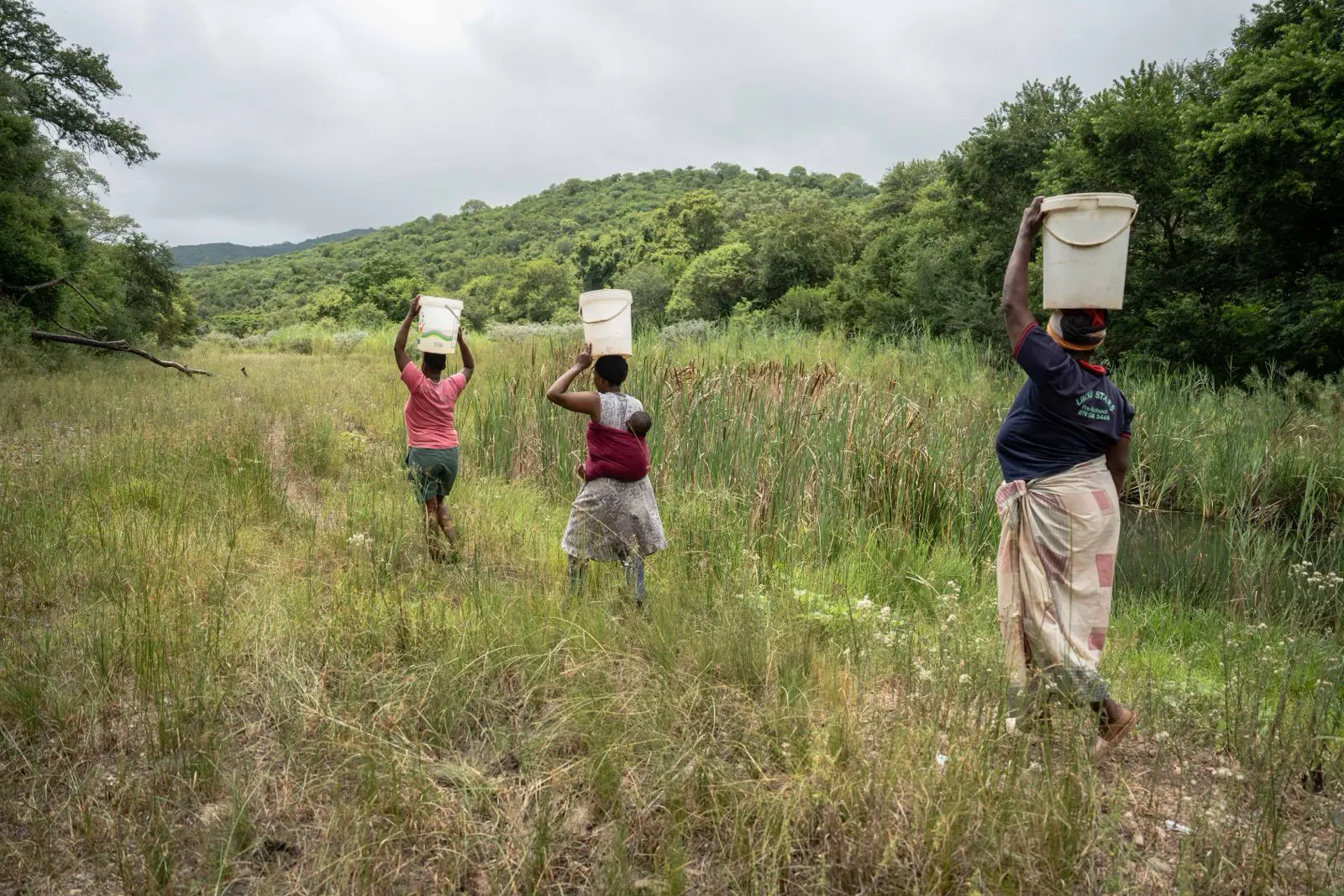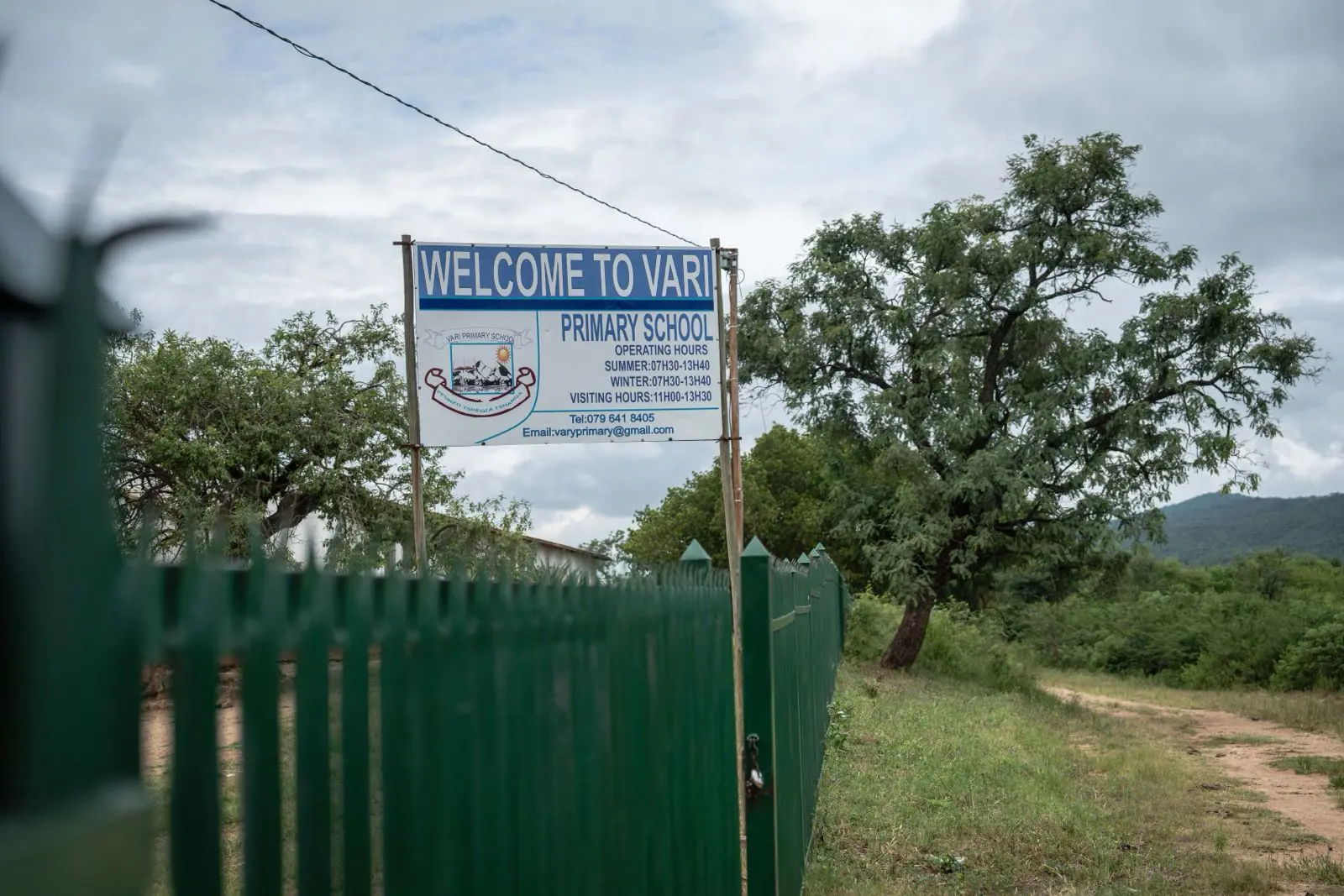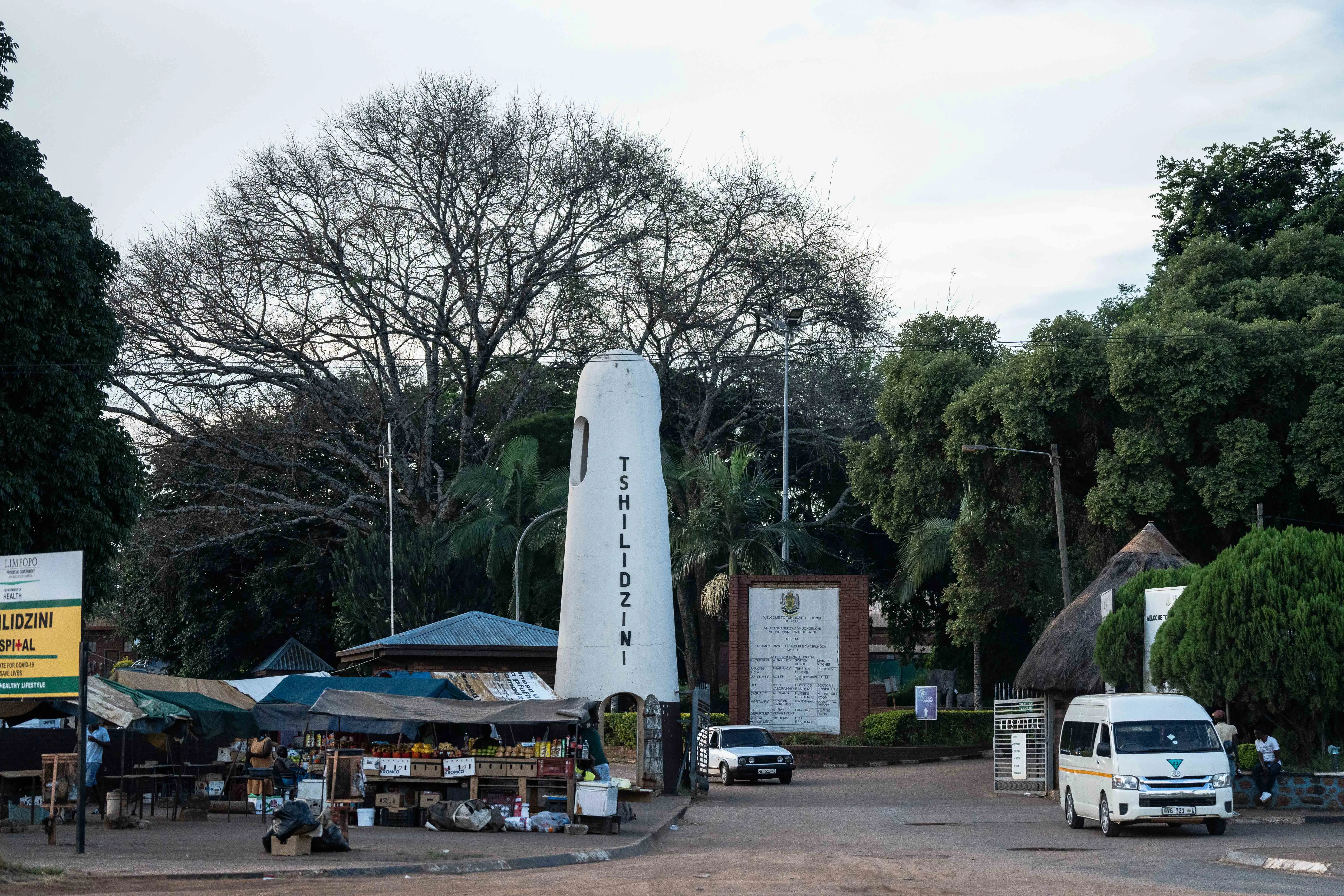Dirty water or dehydration: How Limpopo communities are grappling with water shortages
With South Africa fast approaching its 7th general elections, Eyewitness News travelled across all nine provinces, speaking to citizens, feeling the pulse of the nation ahead of the significant political milestones that lie ahead.

A dry tap at a residence home in Seshego, Polokwane, Limpopo, 10 February 2024. Picture: Jacques Nelles/Eyewitness News
VHEMBE & SESHEGO - With South Africa now just under 90 days before its seventh general elections, Eyewitness News has taken to all nine of its provinces to assess the quality of life 30 years since the advent of democracy.
This week, our focus is on Limpopo, which continues to be defined as a largely rural province plagued by issues relating to unemployment and access to basic services, including water.
In Vhembe, some still get their water from local rivers, with it having to be boiled and purified with bleach before being taken to schools there for consumption.
As the sun rises above Ha-Nthabalala in Vhembe and pupils at Vari Primary School prepare for a day of learning, their parents armed with buckets of water also rise at the crack of dawn, making their way to the nearest embankment pond.
Their job is to ensure their children have access to water while attending classes.
On this particular day, Eyewitness News also got up early, documenting their daily struggle.
Some are carrying 10-litre buckets of water, and with each step they take, their shoes gather dirt from a mixture of morning dew and the dusty gravel roads.
But they are cheerful and engrossed in conversations about farming in the area.
And they too, like many South Africans, are concerned about the upcoming national elections.
Once at the little water source, Eyewitness News watched on as 60-year-old Josephina Lugaga knelt over the pond scooping water to fill her 10-litre bucket.
“We wake up at 5 in the morning and walk to this pond or a river before cows come to have their daily dose. I usually come with ten other parents so that we can get enough water to cook at school. That’s our reality.”

Parents and grandmothers collect water from a nearby pond for their children in Ha-Nthabalala, Vhembe. Picture: Jacques Nelles/Eyewitness News
SHARING WATER WITH ANIMALS
Lugaga's admissions is a dead giveaway of how dire their situation has become. They are in a competition for this key resource with the animals in their community.
The same water is as green as the overgrown grass that surrounds it.
John Makamu, a chief in the Nthabalala village, says residents have no choice but to make use of this dirty water.
“This water is not ready to be used by a human being. I would say it's dirty because cattle drink here, humans are here, all of us we are here.”
Meanwhile, another resident, Tshinakaho Mufumadi’s task of fetching water is complete, she effortlessly puts the bucket on a red and white doek placed over her head as she prepares to walk to the school to supply pupils with water.
She told Eyewitness News that for their children, it was either this water, or risking other complications like dehydration.
“I decided to help and come collect water for children at school so that they can use it after we purify it. I feel that this helps them because if we don’t use water from the river, the children will suffer.”

Residents have no choice but to collect water from the nearest source to provide the precious resource for their families. Picture: Jacques Nelles/Eyewitness News
SCHOOL TAPS RUN DRY

Vari Primary School in Limpopo, where children and educators have limited access to clean, running water. Picture: Jacques Nelles/Eyewitness News
Eyewitness News also paid Vari Primary School a visit.
The school governing body’s chairperson Andrew Masipa said attempts to get running water for the school all failed.
“We tried to dig a borehole at the school, but ground is dry. We probably have six boreholes, but all of them are very dry. This is a long-standing issue. At some point, we used to fetch water at our local clinic, but its taps are also dry now.”
Despite the sheer desperation for access to clean and regular water by both the school and parents in this village, the Limpopo Department of Education insists that water is sent there at least twice a week.
GOVT NOT GETTING THEIR DUCKS IN A ROW
Residents in Seshego, just outside of Polokwane in Limpopo, have not been spared when it comes to issues relating to water shortages.
They told Eyewitness News that despite multiple promises from government, water supply issues remain unresolved.
Their views are echoed in a Human Rights Commission report published last year, which showed that almost a third of the Limpopo province had no access to piped water.
The commission said thousands still relied on rivers and streams, with all municipalities responsible for treating and supplying water failing to provide for the communities they serve.
Water supply issues in and around Polokwane have been well documented for years. Not only has this been severe on the many households in the province, but it's also had an adverse impact on hospitals, particularly in Seshego.
Residents told Eyewitness News of times when pregnant women had to come with their own buckets of water at the local medical facility when preparing for childbirth.
Community leader Vincent Kunutu said it seemed to them that government was struggling to get its ducks in a row.
“The issue of water trucks coming to the location is a normal life to us because we have a municipality that doesn't care about its residents. We have a lot of problems here, especially in maternity wards.”
A local water tanker driver spoke to Eyewitness News on condition of anonymity and said seeing taxpayers relying on him for water was disheartening.
“Sometimes they are happy to get this water because it’s just to unstuck them. Most areas have boreholes, but the big challenge is this thing of transformers for the boreholes.”
Residents have been impatiently waiting for the completion of the Seshego Water Purification Plant, which has been dysfunctional for years.
The Polokwane municipality said upgrades are 95% complete, insisting the plant would bring much-needed relief to residents.
SILOAM HOSPITAL PATIENTS SHARE THEIR MEALS WITH CATS
While the Limpopo Central Hospital is expected to open its doors in 2026, citizens in the province have had to contend with facilities that have been adversely impacted by load shedding, water shortages, poor infrastructure, and long waiting hours.
Sometimes the hospitals in the province also have to manage the burden of attending to thousands of undocumented citizens.
According to some patients, cats meandering about in some of the wards have at times been part of the problems at state facilities in Limpopo.
Deep in the hills of Nzhelele, a village in the Vhembe District, residents here are yearning for quality medical services.
They’re forced to contend with what they’ve described as a shoddy healthcare system at Siloam Hospital, a public facility infamously known for its cat infestation.
When Tshinyadzo Madou was admitted at the hospital last year, she captured a video which went viral, cats roaming around the medical wards and helping themselves to food meant for patients.
“They clearly expect us to share food with stray cats. These animals licked our food. Nurses wouldn't even bother to help, but just stare as the cats make patients feel uncomfortable.”
Madou relies on her experiences to caution loved ones against getting treatment at Siloam Hospital.
“I would never allow my family to be admitted at such a hospital. I would rather take them to a specialised doctor in Polokwane, which costs a fortune. People are being abused at our public hospitals in Venda.
CRITICAL STAFF SHORTAGES AND SHODDY HEALTHCARE

Hospitals and clinics in Vhembe, Limpopo have been severely affected by the country's energy crisis - while some are battling a dire shortage of water. Eyewitness News takes a look at the failing healthcare system in the district.
Eyewitness News then embarked on a 40-minute drive to Shayandima on the outskirts of Thohoyandou, where Tshilidzini Hospital is said to be facing a shortage of specialised staff.
And in the province’s capital, Polokwane, residents are also not happy with the quality of healthcare in the city.
Here one finds Seshego Hospital, which is battling severe water shortages caused by the city’s delays in upgrading the water treatment plant.
Community leader Vincent Kunutu said things had to change, fast.
“It’s a normal life of not getting water, where we just see that the toilets are dirty. So, it’s a life that we are living, but we have given them until elections that things must start to change.”
When Eyewitness News reached out to the Limpopo Health Department, it was told the department was doing its best to provide the best care for residents in Limpopo.